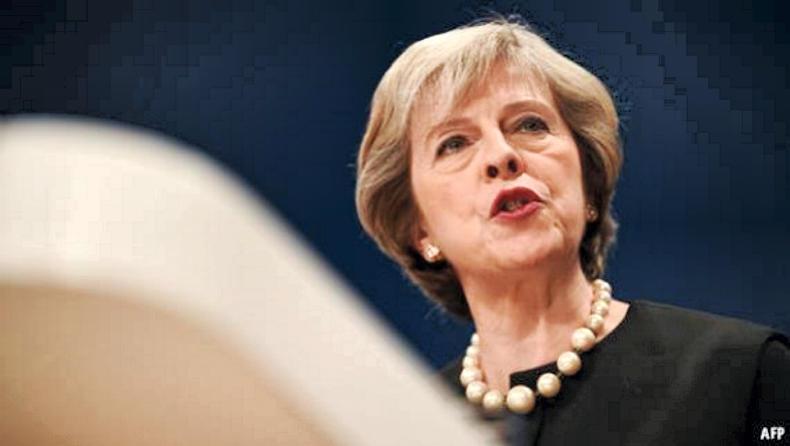In a speech on Monday, British prime minister Theresa May committed to not imposing a physical, hard border in Northern Ireland post-Brexit.
“On Northern Ireland, we have now begun drafting joint principles on preserving the common travel area and associated rights,” May said in a statement to the British parliament.
“And we have both stated explicitly we will not accept any physical infrastructure at the border.”
The British prime minister also said there would be a period after March 2019, when the UK officially leaves the EU, where the UK will enter a “strictly time-limited period” and maintain trading relations with the EU based on present EU rules and regulations.
The news that the UK will not seek to impose a physical border between the north and south of Ireland will be welcomed by many farmers on both sides of the border.
The UK is Ireland’s closest trading partner, with over 50% of our beef and 84% of our poultry exported there.
However, the British prime minister also reaffirmed that the UK would no longer be a member of the single market or its customs union post-Brexit.
Customs border
On Monday morning, an unpublished report from the Irish Revenue came to light that stated an open customs border between the north and south of Ireland would be impossible.
The Revenue had been exploring ways of solving the issue of the Irish border post-Brexit but An Taoiseach Leo Varadkar called a halt to the Revenue’s attempts, citing the need for the UK to come up with its own solutions for Brexit.
The onus, therefore, is very much on the UK to come up with answers for handling the border post-Brexit and, while UK government commitments have been given, so far no details of such a solution have emerged.
Read more
Open customs border impossible post brexit
Island of Ireland proposal mooted post-Brexit
In a speech on Monday, British prime minister Theresa May committed to not imposing a physical, hard border in Northern Ireland post-Brexit.
“On Northern Ireland, we have now begun drafting joint principles on preserving the common travel area and associated rights,” May said in a statement to the British parliament.
“And we have both stated explicitly we will not accept any physical infrastructure at the border.”
The British prime minister also said there would be a period after March 2019, when the UK officially leaves the EU, where the UK will enter a “strictly time-limited period” and maintain trading relations with the EU based on present EU rules and regulations.
The news that the UK will not seek to impose a physical border between the north and south of Ireland will be welcomed by many farmers on both sides of the border.
The UK is Ireland’s closest trading partner, with over 50% of our beef and 84% of our poultry exported there.
However, the British prime minister also reaffirmed that the UK would no longer be a member of the single market or its customs union post-Brexit.
Customs border
On Monday morning, an unpublished report from the Irish Revenue came to light that stated an open customs border between the north and south of Ireland would be impossible.
The Revenue had been exploring ways of solving the issue of the Irish border post-Brexit but An Taoiseach Leo Varadkar called a halt to the Revenue’s attempts, citing the need for the UK to come up with its own solutions for Brexit.
The onus, therefore, is very much on the UK to come up with answers for handling the border post-Brexit and, while UK government commitments have been given, so far no details of such a solution have emerged.
Read more
Open customs border impossible post brexit
Island of Ireland proposal mooted post-Brexit






 This is a subscriber-only article
This is a subscriber-only article











SHARING OPTIONS: